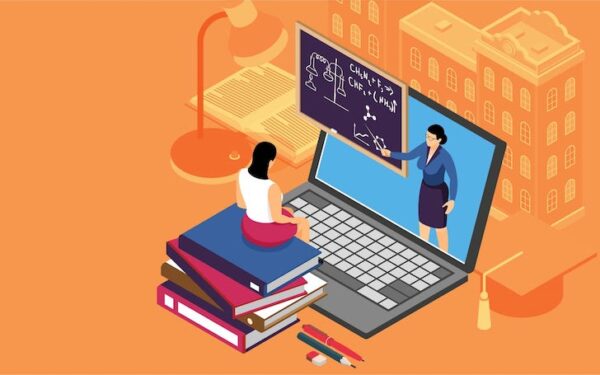Education is evolving rapidly, and one of the most significant transformations in recent years has been the rise of online learning, mainly in part to COVID-19 where students were forced to learn from home.
—
Let’s explore the future of education and the benefits, challenges, and potential innovations associated with online learning.
Flexibility and Accessibility
Online learning offers unparalleled flexibility, allowing students to access educational resources and coursework from anywhere, at any time. Whether it’s working professionals seeking to advance their careers or students who prefer a self-paced learning experience, online education provides the flexibility needed to accommodate diverse lifestyles and schedules.
Additionally, online learning breaks down geographical barriers, enabling universities to reach a global audience and provide education to individuals who may not have had access otherwise.
Personalized Learning Experience
Online learning platforms can be tailored to meet individual students’ needs, enabling personalized learning experiences. With the help of adaptive learning technologies and data-driven analytics, educators can track students’ progress, identify areas for improvement, and provide targeted support. This personalized approach enhances student engagement and allows for more efficient learning, ensuring that students can grasp concepts at their own pace.
Challenges and Solutions
While online learning offers numerous advantages, it is not without its challenges. Technical difficulties, limited face-to-face interaction, and the need for self-discipline are some common obstacles. However, universities are actively addressing these challenges by providing technical support, fostering virtual communities, and implementing strategies to promote student motivation and accountability.
Advancements in virtual reality (VR) and augmented reality (AR) technologies hold promise for creating immersive and interactive online learning experiences, bridging the gap between traditional and virtual classrooms.
The Future of Online Learning
As technology continues to evolve, the future of online learning looks promising. Artificial intelligence (AI), machine learning, and big data analytics are revolutionizing the educational landscape. These technologies can offer personalized recommendations, adaptive assessments, and intelligent tutoring systems, enhancing the learning experience further.
Moreover, the integration of VR and AR technologies will create realistic simulations and immersive learning environments, providing hands-on experiences for students pursuing subjects such as medicine, engineering, and design.
Conclusion
Online learning has emerged as a transformative force in education, offering flexibility, accessibility, and personalized learning experiences. While challenges exist, universities are embracing online learning and actively working on innovative solutions to overcome them.
The future of education lies in a blend of traditional and online learning methodologies, creating dynamic and inclusive educational experiences that prepare students for the challenges of tomorrow.
By embracing online learning, universities can cater to the diverse needs of students and contribute to a more accessible and inclusive educational landscape.

